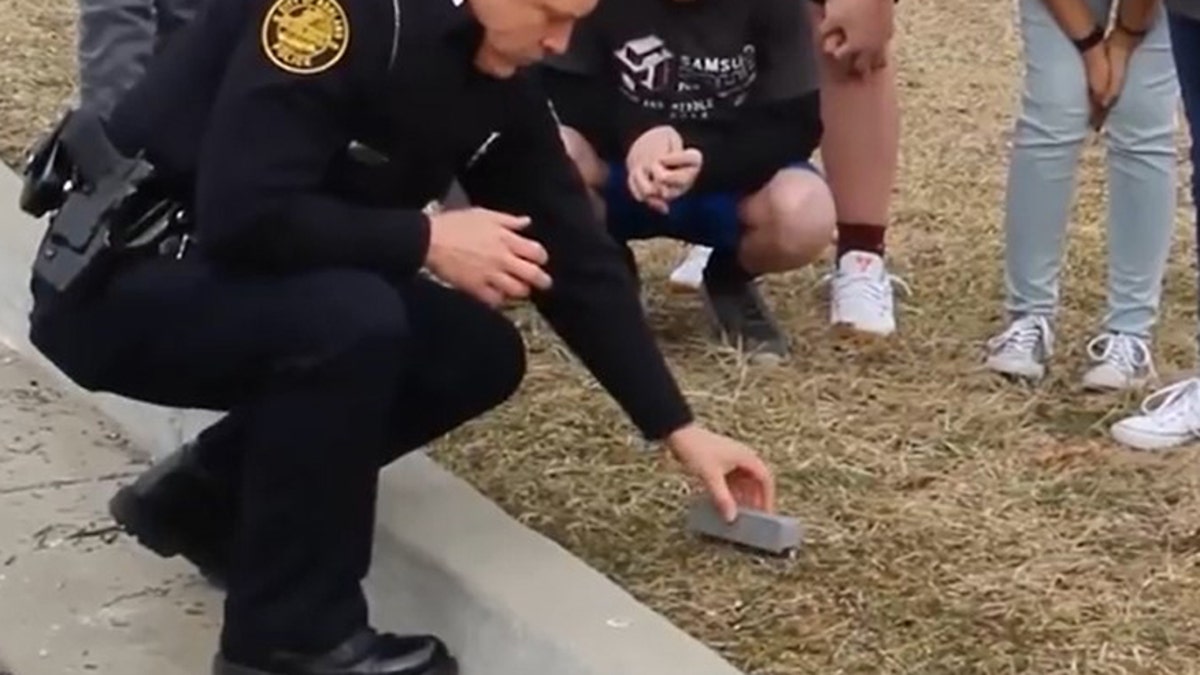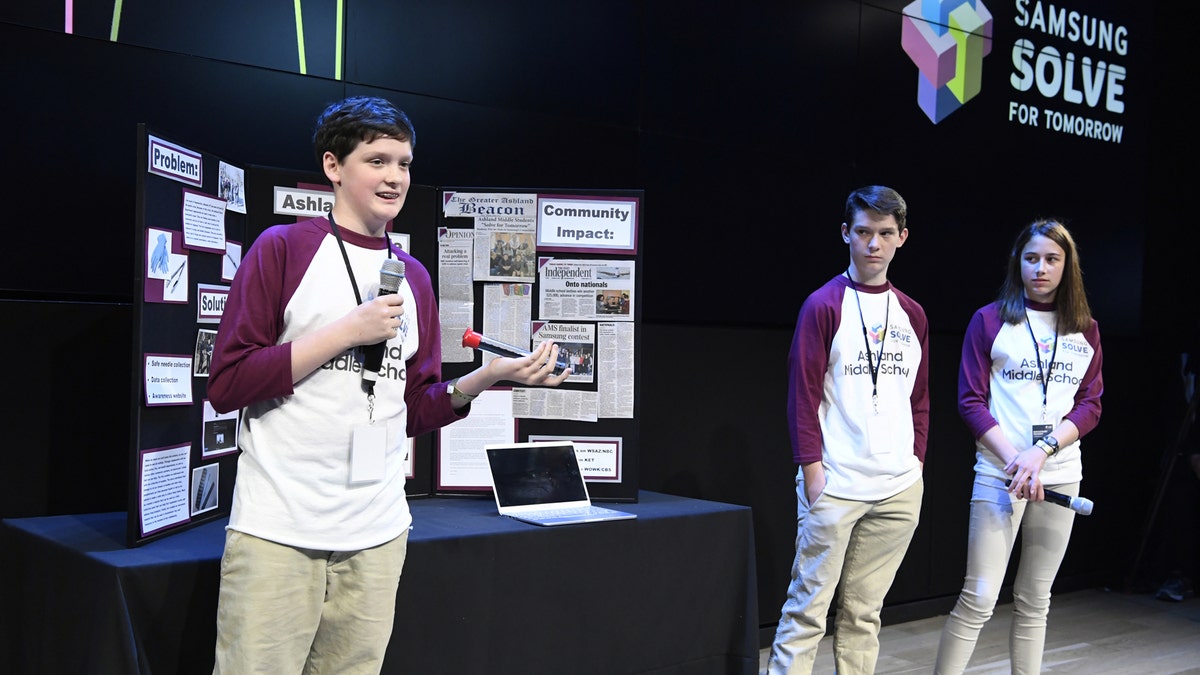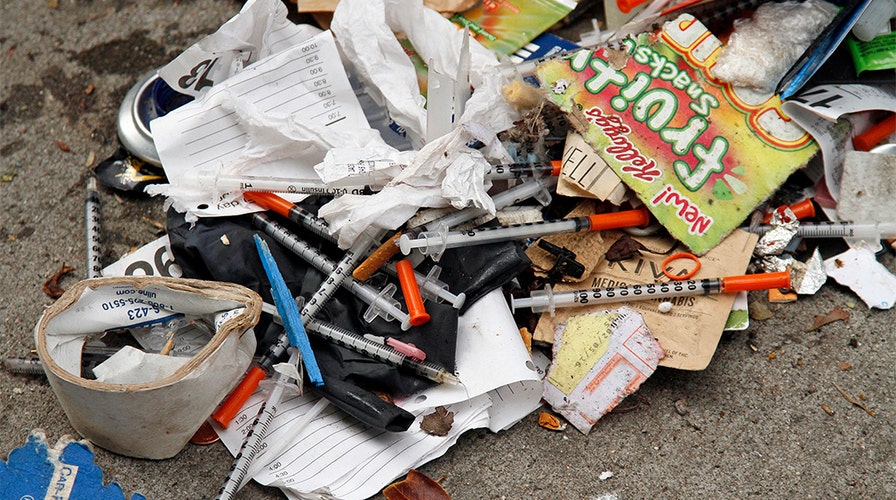Fox News Flash top headlines for Sept. 13
Fox News Flash top headlines for Sept. 13 are here. Check out what's clicking on Foxnews.com
A middle school in Kentucky has built an online database to complement a needle-collecting device it developed.
In May of last year, middle schoolers from the Ashland Middle School in Ashland, Ky., were among the national winners of Samsung’s Solve for Tomorrow contest. They won for developing a device that lets first responders safely collect potentially hazardous needles left behind by opioid and other drug users.
The device itself, 3D-printed at the school, is a small plastic box, about the length of a syringe and a few inches wide. The box is placed over the needle, then squeezed to pick up the syringe.
KENTUCKY MIDDLE SCHOOLERS DESIGN 3D-PRINTED DEVICE TO HELP FIGHT OPIOID CRISIS
“We have an open order as soon as we can provide it. Every police car in the city will be equipped with our device as soon as we can get them to [the police department],” John Leistner, a teacher at Ashland Middle, told Fox News in an interview on Thursday.

A police officer with the prototype device designed for safely picking up hypodermic needles. (Screenshot from Samsung YouTube video)
The school is trying to come up with a cost-efficient way to manufacture the device after prototyping it on the school’s 3D printers.
During the process of developing the device, the students also created an online database where people can report where they find used needles. The goal was to map the areas where needles can be found.
GOOGLE TAPS TECH TO HELP BATTLE OPIOID CRISIS
“The Ashland Police Department has been on board with our project since Day 1,” Aubree Hay, a student at Ashland Middle School, told Fox News.

From left, students Isaac Campbell, Caleb Campbell and Aubree Hay from Ashland Middle School present their Solve for Tomorrow last year in New York. (Samsung)
“We passed off our database to Ashland Police Department. Right now they are updating the map as we speak,” she said.
“The database is just a Google map with pins where needles have been found. Right now [the police department is] actually entering pins where needles have been found in our area,” she added.









































